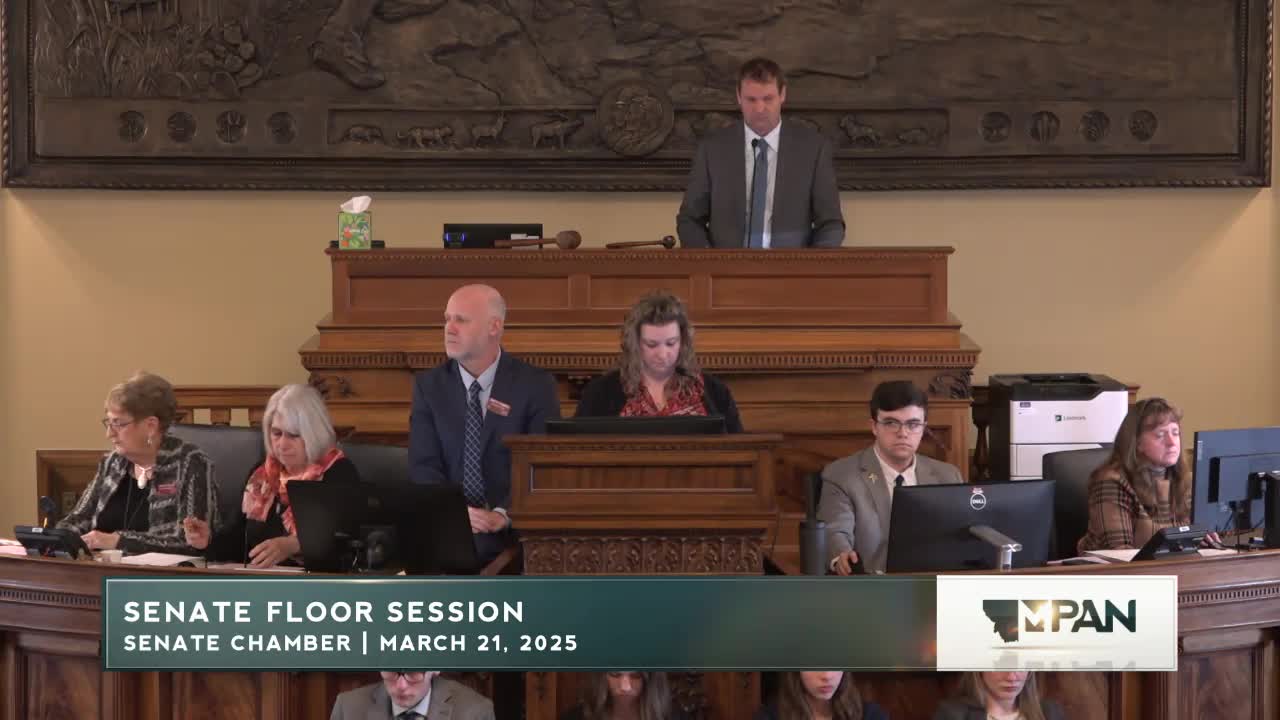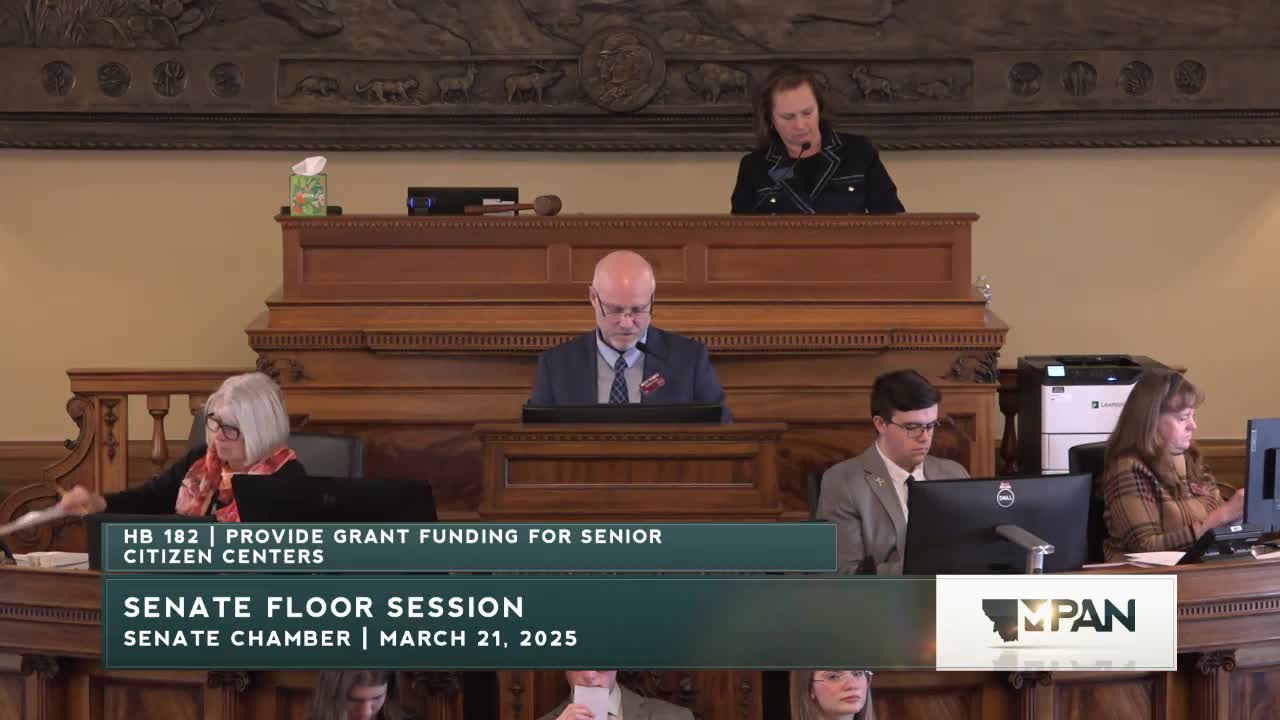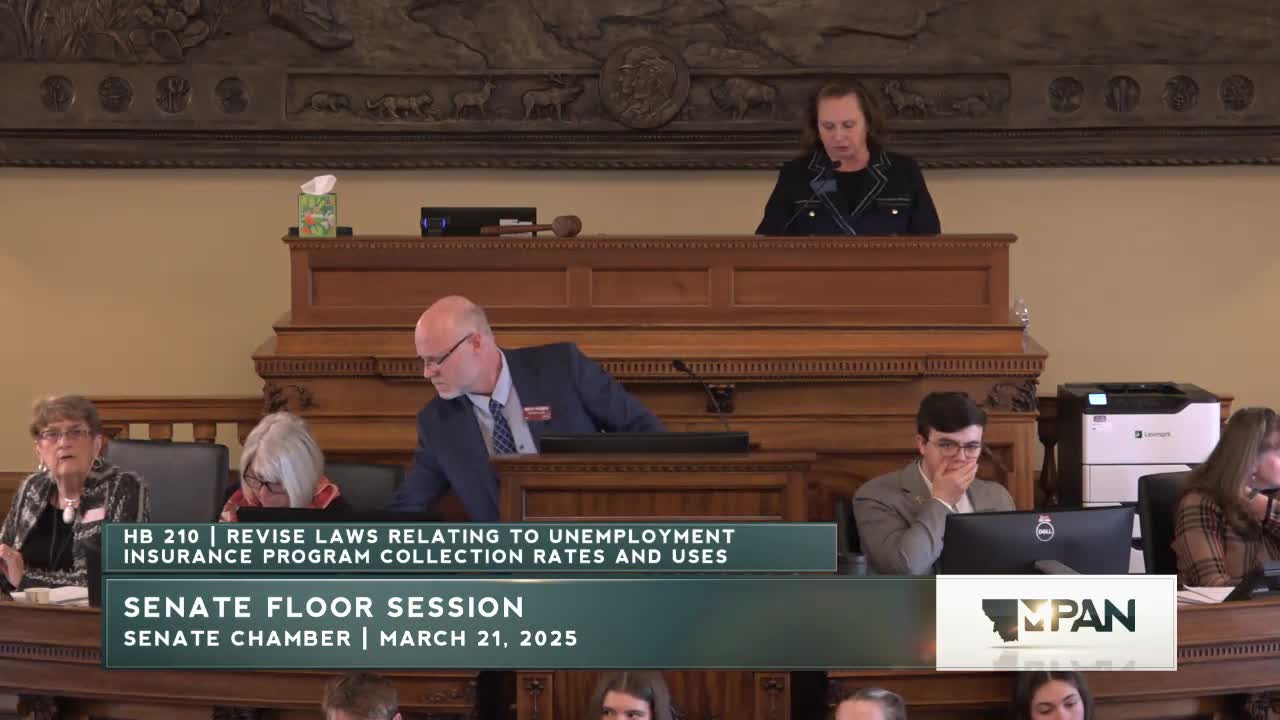Article not found
This article is no longer available. But don't worry—we've gathered other articles that discuss the same topic.

Votes at a glance: key bills the Montana Senate passed March 21, 2025

Senate approves $5 million competitive grant program for senior centers after debate over costs and eligibility

